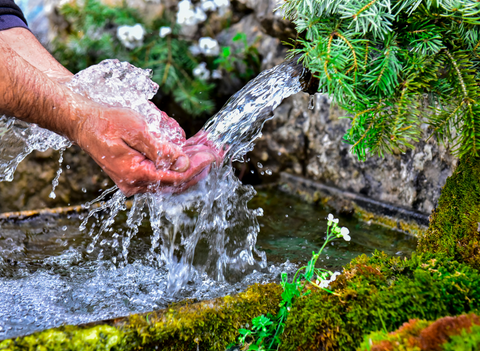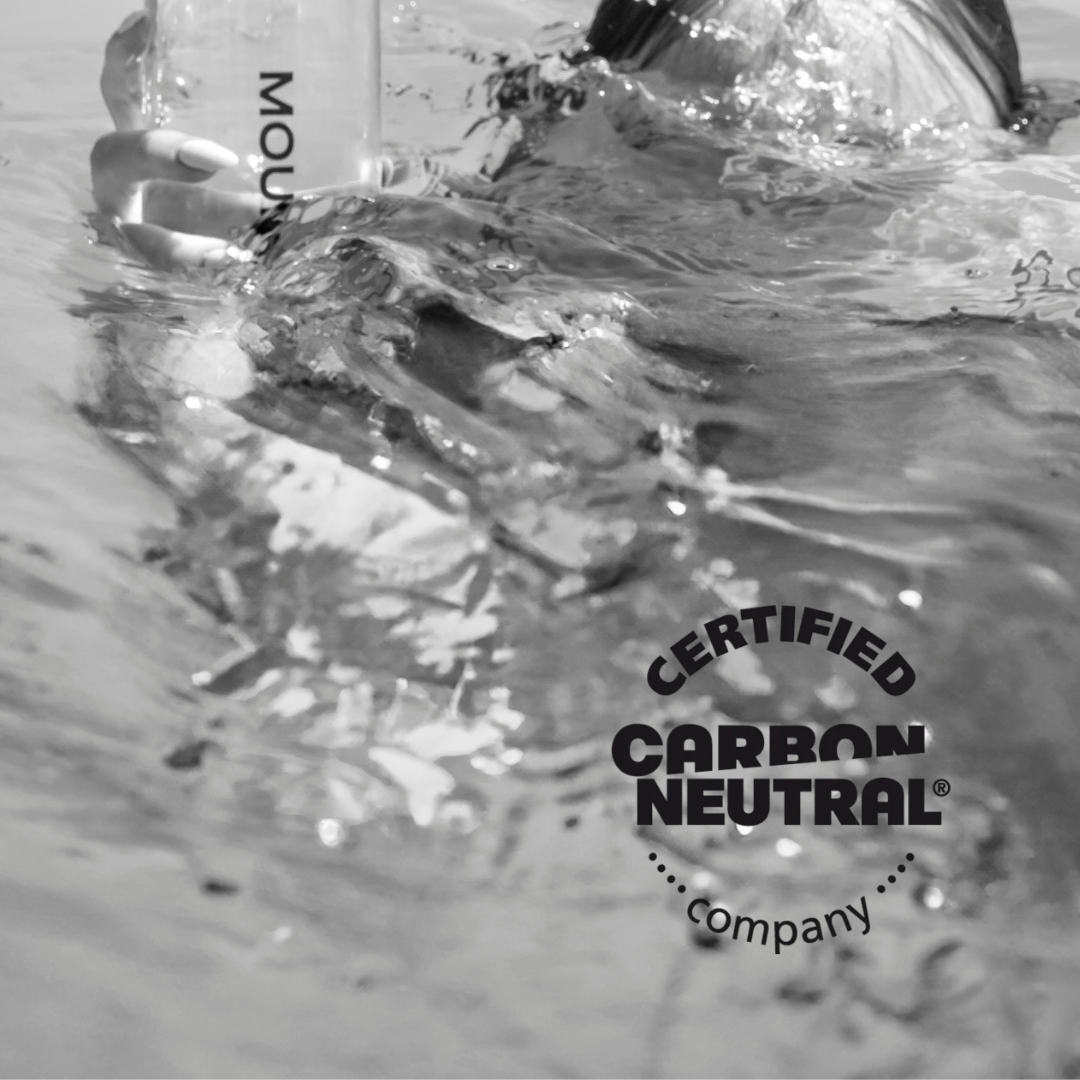Spring water, a term that conjures images of purity and nature, has long been cherished for its refreshing taste and health benefits. In South Africa, with its rich landscapes and diverse ecosystems, spring water is not just a drink but a testament to the country's natural wealth. From the rolling hills of the Western Cape to the vast expanses of the Karoo, springs bubble up, offering water that's as clean as it is vital.
This natural resource plays a pivotal role in the lives of South Africans, not only for drinking but also for agriculture and recreation. It's a source of life in the truest sense, connecting communities to their environment and to each other. As we explore the significance of spring water, you'll discover its impact on health, the economy, and the very fabric of South African society.
Key Takeaways
-
Spring water in South Africa is a cherished natural resource, sourced from underground aquifers and known for its purity and rich mineral profile, which includes essential nutrients like calcium, magnesium, potassium, and sodium.
-
Minimal processing ensures the preservation of spring water's natural minerals and taste, making it a healthier and more refreshing option than tap water, which undergoes extensive treatment that can strip away beneficial minerals.
-
South African spring water companies adhere to strict regulatory standards, including those set by the South African National Standards (SANS) 1657, to ensure the safety, quality, and preservation of the water's natural mineral composition.
-
The environmental impact of bottling and distributing spring water is a growing concern, with leading brands adopting sustainable practices such as using recyclable materials, and investing in renewable energy sources to minimise their ecological footprint.
-
Personal preference plays a significant role in the choice of spring water, with various brands offering different tastes and mineral contents, allowing consumers to select water that best suits their taste and health needs.
-
Choosing spring water over tap water allows individuals to control their intake of minerals, including natural fluoride levels, catering to those seeking the healthiest option with minimal environmental impact.
What is Spring Water?

Spring water, a term you've likely heard numerous times, holds a unique position in the vast landscape of drinking water. This natural resource not only quenches your thirst but also brings a plethora of health benefits directly from the earth's crust. In South Africa, home to some of the best spring water sources globally, understanding what makes spring water distinct and valuable is crucial.
Source and Natural Composition
Spring water originates from underground aquifers and surfaces naturally at the earth's crust. Unlike other types of water, spring water travels through layers of rock, sand, and earth, which naturally filters it and imbues it with a rich mineral profile. In South Africa, the journey of spring water begins deep within the mountains, such as the famous Table Mountain in Cape Town, or the verdant Drakensberg. These pristine sources are the cradles of what many consider the best mineral water due to its purity and mineral content.
The Healthiest Water in South Africa isn’t just a tagline; it’s a reality grounded in the water’s natural composition. Essential minerals found in spring water include calcium, magnesium, potassium, and sodium, all crucial for maintaining a healthy body. The unique combination of these minerals gives the water not only its refreshing taste but also its health-boosting properties.
Processing and Bottling

Once the spring water is harvested from its natural source, it undergoes minimal processing. The goal here is to preserve its natural purity and mineral content while ensuring it meets strict safety standards. In South Africa, spring water companies like Mountain Falls often emphasise maintaining the integrity of the water from source to bottle. This involves protecting the catchment areas to prevent contamination and employing state-of-the-art filtration systems that remove potential pathogens without stripping away the water’s natural minerals.
Bottling is the next crucial step in bringing the best spring water to your table. Companies use high-quality, food-grade bottles that keep the water safe and taste fresh. The bottling process in South Africa adheres to rigorous health and safety standards, ensuring that when you indulge in a bottle of spring water, you're enjoying nature’s gift at its purest.
South African spring water companies are at the forefront of eco-friendly practices, too, often spearheading initiatives in sustainable sourcing and packaging. This not only ensures the longevity of these precious water sources but also aligns with the global movement towards environmental stewardship.
By understanding the journey of spring water from its underground reservoirs through to the careful processing and bottling stages, you're better equipped to appreciate the value and purity of what is arguably the healthiest water choice available. Whether it's for hydration, health benefits, or the sheer pleasure of tasting water in its most natural state, spring water stands out as a premium choice.
What is Tap Water?
In the journey to understand spring water, it's essential to differentiate it from the water that flows from your tap. This section will delve into what tap water is, with a particular focus on South Africa, comparing it to the best spring water in South Africa.
Municipal Water Supply Systems
South Africa's municipal water supply systems source water primarily from rivers, lakes, and dams. This water undergoes a rigorous treatment process before reaching your tap, ensuring it's safe for consumption. Yet, it's important to note that despite these efforts, tap water doesn't boast the natural mineral content that spring water or mineral water does. Although it's treated to remove contaminants, this process can also strip away beneficial minerals.
In comparison, the best spring water in South Africa is renowned for its natural purity and rich mineral content. Sourced from underground aquifers, it's naturally filtered through layers of rock, collecting essential minerals along the way. This natural filtration process not only enhances the water's taste but also contributes to its health benefits, making it arguably the healthiest water in South Africa.
Treatment and Additives in South Africa
Understanding the treatment process and additives in tap water further highlights why many South Africans are turning to spring water for their hydration needs. Municipal tap water in South Africa undergoes several treatment phases including flocculation, sedimentation, filtration, and disinfection with chemicals like chlorine. These treatments are necessary to meet safety standards but can affect the water's taste and remove natural minerals.
Furthermore, municipalities sometimes add fluoride to the water supply, a practice that has sparked debate regarding its health implications. While these additives and treatments ensure the water is safe from pathogens and contaminants, they also mean that tap water lacks the natural, untampered qualities found in the best mineral water.
Spring water, on the other hand, is minimally processed. The aim is to preserve its natural mineral composition and purity, ensuring it retains the health benefits without the need for extensive chemical treatment. Leading South African spring water brands pride themselves on sourcing water from pristine environments, ensuring the water you drink is as pure and healthful as nature intended.
While tap water is safe and accessible, those seeking the most natural and beneficial hydration are increasingly opting for spring water. With its unparalleled taste, mineral content, and health benefits, it's clear why it's considered the best mineral water option in South Africa.
Quality and Safety Considerations

When exploring the best spring water in South Africa, it's essential to delve into the quality and safety considerations that ensure you're consuming not only the tastiest but also the healthiest water available. South Africa's diverse landscape provides an abundant source of mineral water, but knowing the regulatory standards and potential contaminants can help you make an informed choice.
Regulatory Standards in South Africa
In South Africa, the quality of bottled spring water is governed by strict regulatory standards to ensure safety and healthiness. The South African National Standards (SANS) 1657 sets out the requirements for the exploitation, production, packaging, and distribution of natural mineral water and spring water. This ensures that the best spring water in South Africa meets rigorous health and safety benchmarks before it reaches your glass.
Under these standards, spring water must be collected from a natural or borehole source and cannot undergo any treatment that alters its original mineral composition, apart from the removal of unstable elements such as iron and sulphur. This regulation helps preserve the natural purity and mineral content that makes spring water the healthiest water choice for many South Africans.
To uphold these standards, bottlers must regularly submit their products for testing. This includes microbiological analyses to detect any harmful organisms, chemical analyses to confirm the mineral content, and physical assessments to ensure compliance with packaging and labelling requirements. All these measures come together to certify that consumers are receiving the best mineral water, filled with natural goodness and free from unwanted adulteration.
Potential Contaminants
While the thought of refreshing, clear spring water conjures images of purity and untainted quality, potential contaminants can pose risks if not properly monitored. Understanding what these contaminants are and how they are managed is key to appreciating the safety of the best spring water in South Africa.
Natural spring water sources, though often cleaner than rivers or lakes, can still be susceptible to environmental pollutants. These can include agricultural runoff, industrial waste, and natural substances like algae that could introduce toxins. Additionally, microorganisms such as bacteria and parasites naturally present in the environment can sometimes find their way into water sources.
To combat these potential contaminants, spring water producers in South Africa adhere to strict monitoring and filtration protocols. Modern filtration methods, including UV light treatment and reverse osmosis, are employed to remove any impurities while maintaining the water's natural mineral balance. Regular testing ensures that any potential threats to quality and safety are identified and addressed long before the water reaches consumers.
In essence, while there are potential risks associated with any natural water source, the stringent regulatory framework and advanced purification processes in South Africa work hand-in-hand to ensure that the best spring water and mineral water available is not only refreshing and tasty but also pure, safe, and enriched with natural minerals beneficial to health.
Taste and Aesthetic Differences

When exploring the various options for staying hydrated, you'll find that spring water often stands out, particularly when considering the best spring water in South Africa. This section delves into why this type of water may offer a superior taste and aesthetic appeal, primarily due to its mineral content and the personal preferences that influence our choices.
The Role of Minerals
Spring water's unique taste and feel can be largely attributed to its mineral content. Unlike processed or purified water, spring water retains minerals found naturally in the earth. These minerals include calcium, magnesium, potassium, and sodium, contributing not only to your health but also to the water's crisp, refreshing taste.
In South Africa, where diverse geological landscapes abound, the mineral content in spring water can vary significantly from one source to another, offering a wide range of tastes. Best mineral water brands often highlight their unique mineral composition, appealing to those looking for both taste and health benefits. For instance, a higher magnesium content can contribute to a slightly sweet taste, which some find more palatable.
Understanding the interaction between these minerals and your health is crucial. Studies have shown that drinking mineral-rich water can contribute to your daily mineral intake without adding calories. This aspect is especially appealing for individuals seeking the healthiest water in South Africa.
Personal Preferences
When it comes to choosing the best spring water, personal preferences play a significant role. The subtle differences in taste, influenced by the water's mineral content, can sway your choice. For many, the decision boils down to what feels best on the palate. Some people prefer a more robust mineral taste, equating it with purity and health benefits, while others might opt for a lighter taste, finding it more refreshing.
The aesthetic appeal of the water, including clarity and the feeling it leaves in your mouth, also factors into personal preferences. Premium spring water brands in South Africa pay close attention to maintaining a high aesthetic standard, ensuring their water not only tastes good but also looks and feels appealing.
Your personal preference might lean towards spring water known for its revitalising taste and the sensation of hydration it provides. As you explore the various options, consider not just the taste but also how the water makes you feel. The best spring water in South Africa is not just about hydration; it’s about enjoying a natural resource that offers both taste and health advantages.
As you continue your journey to find the perfect spring water, remember that your preferences are valid and essential. The beauty of South Africa's natural resources offers a palette of choices, each with its unique taste and health benefits. Let your senses guide you as you explore the diverse offerings of spring water across the country, enhancing not only your hydration but your overall well-being.
Health Implications
When delving into the health implications of spring water, particularly in South Africa, it becomes essential to understand how this natural resource not only quenches thirst but also contributes significantly to your daily nutritional intake. With an array of options available, selecting the best spring water in South Africa can significantly impact your hydration levels and nutrient intake.
Hydration and Nutrient Intake
Spring water, often hailed as the healthiest water in South Africa, is renowned for its rich mineral content, including essential electrolytes such as calcium, magnesium, and potassium. These minerals are not just mere components; they play a pivotal role in enhancing your overall health. Drinking high-quality spring or mineral water means you're not just hydrating your body; you're also supplementing it with vital nutrients that may not be present in sufficient quantities in your regular diet.
Key Benefits of Spring Water for Hydration and Nutrient Intake:
-
Electrolyte Balance: The electrolytes found in the best mineral water help maintain the body's pH balance and ensure proper muscle function.
-
Enhanced Hydration: Due to its purity and mineral content, spring water is absorbed more efficiently by your body, ensuring you stay hydrated for longer periods.
-
Natural Filtration: Spring water from reputable sources in South Africa undergoes natural filtration processes, ensuring it's free from contaminants while retaining beneficial minerals.
By choosing the best spring water in South Africa, you're making a conscious decision to enhance your hydration and nutrient intake, directly contributing to your overall well-being.
The Debate Over Fluoridation
The addition of fluoride to water supplies has been a topic of heated debate worldwide, including South Africa. While fluoridation is endorsed by numerous public health agencies as a means to prevent tooth decay, concerns have been raised about its potential health risks. Spring water naturally contains fluoride at varying levels, but the concentration is typically much lower than that found in fluoridated tap water.
-
Dental Health Benefits: Proponents of fluoridation argue that fluoride in water significantly reduces cavities and tooth decay in the population.
-
Potential Health Concerns: Critics highlight studies suggesting an association between high fluoride levels and various health issues, advocating for the choice to consume water with natural fluoride levels.
-
Personal Choice: Opting for spring water allows individuals to control their fluoride intake, catering to those who prefer water with natural mineralisation and without additional fluoridation.
In the context of South Africa, where diverse opinions exist on water fluoridation, spring water presents a compelling alternative for those seeking the best mineral water with balanced mineral content, including natural fluoride levels. Whether your focus is on the health benefits or the taste, the choice of spring water can significantly influence your daily fluoride intake, making it an essential consideration for those mindful of their health and well-being.
Environmental Impact

When you reach for that bottle of spring water, it's crucial to consider not just the health benefits but also the environmental footprint it leaves behind. In South Africa, where conservation and sustainability are increasingly at the forefront of consumers’ minds, understanding the environmental impact of spring water production is key.
Bottling and Packaging
The process of bottling and packaging plays a significant role in the environmental impact of spring water. Traditional plastic bottles are known for their long decomposition rates, posing a threat to wildlife and ecosystems. However, the best spring water brands in South Africa are turning the tide by adopting more sustainable practices. These include using recyclable materials and investing in biodegradable bottle technology to minimise their environmental footprint. It's a step towards ensuring that your choice of hydration doesn't come at the earth's expense.
Moreover, innovative packaging solutions, such as glass bottles and refillable containers, are gaining traction. These alternatives not only reduce waste but also maintain the purity and taste of the mineral water inside. By supporting brands that prioritise eco-friendly packaging, you're contributing to a cleaner, greener planet.
Sustainability Efforts
The journey to bringing you the healthiest water in South Africa doesn't end with packaging. Sustainability efforts extend to the sourcing and distribution of spring water. The best mineral water companies are those that implement practices to protect and preserve the natural springs they depend on. This includes managing water extraction to prevent depletion and ensuring the surrounding ecosystem remains unharmed.
Furthermore, water companies in South Africa are increasingly adopting renewable energy sources in their production processes. Solar and wind power, for instance, are used to reduce carbon emissions, making the process of getting that refreshing bottle of water to your hands more environmentally friendly.
Water conservation programs are also a critical part of sustainability efforts. These programs aim to educate communities on the importance of saving water and implementing more efficient irrigation and consumption practices. By aligning with brands that are actively involved in such programs, you're not just quenching your thirst but also contributing to the broader goal of water conservation in South Africa.
In your pursuit of the best spring water in South Africa, remember that every choice you make has a ripple effect on the environment. Supporting brands committed to sustainability ensures that your hydration needs are met without compromising the planet's well-being.
Choosing spring water isn't just about quenching your thirst or boosting your mineral intake; it's a step towards supporting sustainable practices in South Africa. By opting for brands that prioritise eco-friendly production and packaging, you're contributing to water conservation and ecosystem preservation. This ensures that future generations can continue to enjoy the natural purity of spring water. Remember, every purchase is a vote for the kind of world you want to live in. So, make it count by choosing wisely and embracing sustainability in your hydration choices.
Frequently Asked Questions
What benefits does spring water offer for hydration and mineral intake?
Spring water is naturally rich in essential minerals and offers superior hydration. Drinking it can replenish the body's hydration levels and provide minerals necessary for bodily functions, contributing to overall health and well-being.
How does the environmental impact of spring water production matter?
The environmental impact is significant as the extraction, bottling, and packaging of spring water can harm ecosystems if not managed sustainably. Eco-friendly practices reduce the carbon footprint and preserve natural resources, making the industry more sustainable.
What are eco-friendly practices in the spring water industry?
Eco-friendly practices include using recyclable materials for bottling, employing renewable energy sources, conserving water, and protecting ecosystems where spring water is sourced. These measures ensure the sustainability of the product and contribute to environmental conservation.
How can consumers contribute to environmental conservation by choosing spring water?
By selecting brands that prioritise sustainability, consumers support eco-friendly practices in the spring water industry. This encourages more brands to adopt sustainable measures, leading to a positive environmental impact and the conservation of natural resources in South Africa.
Why is it important to support sustainable spring water brands?
Supporting sustainable brands helps ensure the long-term availability of high-quality spring water and contributes to the preservation of natural ecosystems. It aligns consumer choices with environmental conservation efforts, promoting a healthier planet.



